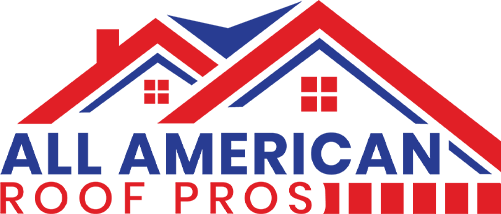Homeowners love the benefit that metal roofing can offer, like longevity and durability. Metal roofing even helps with energy costs due to how it reflects the sun’s heat. Once you decide that metal roofing is the right option for your home, it’s time to get into the specifics of choosing your roofing material. One specific factor that you’ll need to take into consideration is the gauge of the metal roofing material that you purchase.
What Is the Gauge of Metal Roofing?
One of the first questions that any metal roofing contractor is likely to ask you is what gauge thickness you want your metal roofing to be. For those who are unfamiliar, the “gauge” of metal roofing means the thickness of the metal itself. You have many different gauge options out there, with the usual being between 22 and 29 for residential roofs.
It’s crucial to realize that the higher the gauge number, the thinner the metal roofing panel gets. A metal roof with a gauge of 22 is going to be the thickest gauge you can get for residential use. On the other hand, the thinnest metal roofing you’re going to get is 29-gauge. To help put this into perspective, a thick hood of a car is 20-gauge metal while a thin soda can is a 37-gauge metal.
Factors That Impact Your Decision
Having a metal roof installed isn’t only about picking a particular gauge metal. You also need to consider what other materials and construction methods will be utilized.
One of the most important factors when deciding what gauge of roofing to use is the climate that you live in. Thicker gauge metal is going to be more durable and resistant to adverse weather conditions. Because it’s thicker, this roofing metal will remain structurally sound for much longer and will require less support from the actual structure of the building itself. If you live in a climate where there’s a lot of snow, you may need to have a thicker gauge roofing material to help withstand the weight of the snow during the winter season.
The second most important factor to consider is the cost of the metal roof itself. If you live in a region of the country where you’re not dealing with snow in the winter, you can get away with a thinner gauge metal. The thinner the metal is, the cheaper it’s going to be to purchase. Homeowners should look to find a metal gauge that meets the minimum of their requirements to help keep material and installation costs to a minimum.
Another significant factor to consider when choosing the gauge for your next metal roof is the necessary pitch. Each roofing panel manufacturer will provide a minimum pitch that their roofing material must be installed for it to work correctly. Different metal roof gauges may require different pitches. If your roof doesn’t have a large pitch to it, your options of which metal gauges you can go with may be limited.
Pros and Cons of Thicker Gauge Metal Roofing
There’s no denying the fact that a thicker gauge metal roof is going to have more structural integrity than a thinner gauge roof. This will provide more protection from adverse weather conditions and prevent cosmetic defects like dents. Additionally, thicker gauge metal roofing will hold up more weight, such as snow, than thinner gauge metal roofing.
Thicker gauge metal is typically recommended for residents who live in areas of the country that experienced high winds and severe winter weather conditions. One of the biggest drawbacks to having a thicker gauge metal roof is the cost. The thicker the gauge, the more expensive each panel is going to be a purchase. Due to the heaviness of each roofing panel, the labor expense for installation is going to be much higher than thinner, lighter metal roofing panels.
Pros and Cons of Thinner Gauge Metal Roofing
The biggest benefit of going with a thinner gauge metal roofing material is that it’s going to be much less expensive than a thicker gauge. This holds true for both the purchase of the metal itself as well as labor costs of installation. This can drastically reduce the overall cost of replacing the roof on your building. This thinner roofing material helps to keep out the wet weather and is available in many different color varieties so that you can choose one that matches the overall theme of your home.
One of the most significant drawbacks to thinner gauge metal roofing is that it does not have the structural integrity to withhold its form without the necessary support from the roof. This type of metal will not stand up to adverse weather like wind storms and snow accumulation. Additionally, it will be more susceptible to cosmetic damage like dents from a hail storm. Even during the installation process, thinner metal roofing can easily become permanently misconfigured when fasteners are over-tightened.
A Note on Different Metals
Along with the concept of metal roofing gauges, there are also different metal types that you can choose from. The most popular include zinc, copper, aluminum, and steel. The most utilized roofing material is steel due to its high density and ability to hold paint well. Aluminum is recommended for areas with high wind and can run on the expensive side. Copper is a great alternative to steel when you’re looking for a longer-lasting product that doesn’t rust. However, copper can be more expensive than steel for this reason.
Each type of roofing metal has its own standards for gauging its thickness. For example, steel gauges are going to use a different thickness standard than aluminum roofing panels. Therefore, the type of metal that you utilize for your roof is going to determine what gauge of roofing material you will need to purchase to adequately protect your home.
Most Common Residential Gauges Used
In the roofing industry, there are two main gauges that are utilized for residential purposes. For homes in areas of the country that do not experience extreme weather conditions, 29-gauge roofing is the industry standard. This gauge metal roofing is thick enough to be structurally sound and relatively affordable for the average homeowner.
In areas of the country that experience extreme weather conditions, the industry standard is 24-gauge. This helps to provide more structural integrity and resistance to these harsh weather conditions. However, 24-gauge metal roofing panels are more expensive due to their higher thickness than the 29-gauge roofing panels.
Reliable Roofing Services
All American Roof Pros provides reliable metal roofing services to residents of Mansfield, OH, and surrounding regions. We’re here for all of your residential and commercial roofing needs, as well as insurance claim assistance. We even offer financing! Hop online to get a quote or call our office today with any questions!


